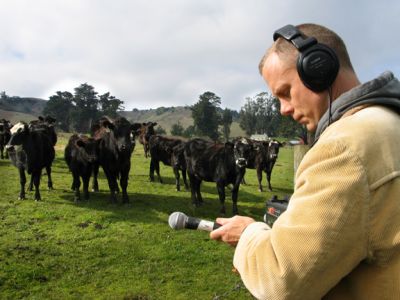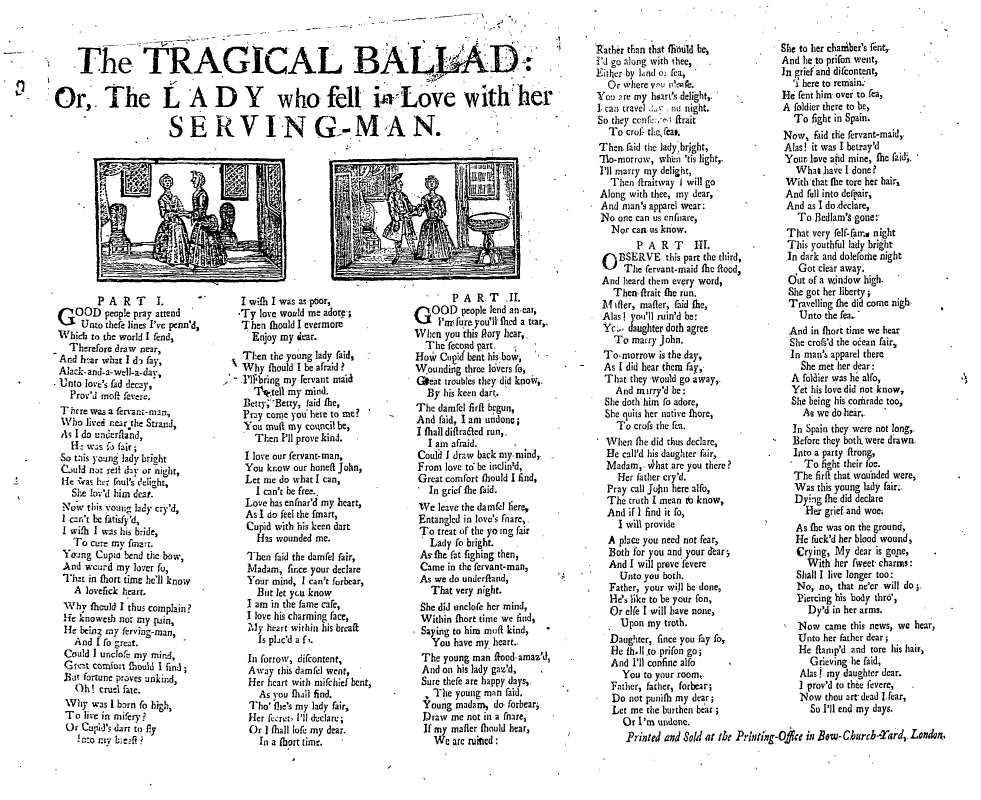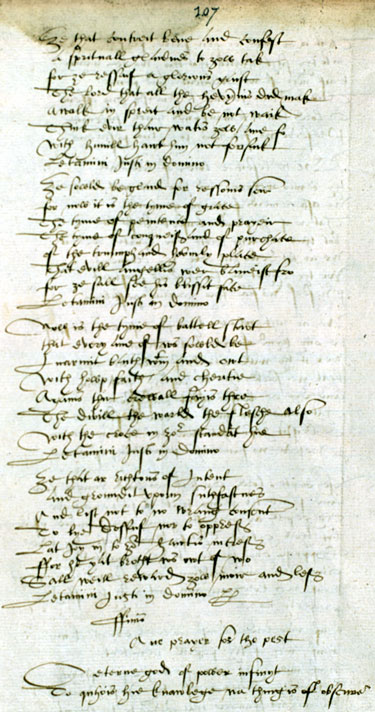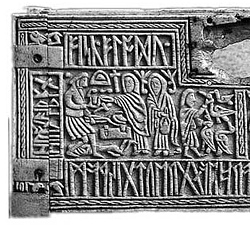|
John Barleycorn
"John Barleycorn" is an England, English and Scotland, Scottish folk song. The song's protagonist is John Barleycorn, a personification of barley and of the beer made from it. In the song, he suffers indignities, attacks, and death that correspond to the various stages of barley cultivation, such as Reaper#Hand reaping, reaping and malting. The song may have its origins in ancient English folklore, English or Scottish folklore, with written evidence of the song dating it at least as far back as the Elizabethan era. It is listed as List of folk songs by Roud number, number 164 in the Roud Folk Song Index. The oldest versions are Scottish and include the Scots language, Scots poem "Quhy Sowld Nocht Allane Honorit Be". In 1782, the Scottish poet Robert Burns published his own version of the song, which influenced subsequent versions. The song survived into the twentieth century in the oral folk tradition, primarily in England, and many popular folk revival artists have recorded ... [...More Info...] [...Related Items...] OR: [Wikipedia] [Google] [Baidu] |
Broadside Ballad Entitled 'A Huy And Cry After Sir John Barlycorn'
Broadside or broadsides may refer to: Naval * Broadside (naval), terminology for the side of a ship, the battery of cannon on one side of a warship, or their near simultaneous fire on naval warfare Printing and literature * Broadside (comic strip), a weekly cartoon for United States Navy personnel * ''Broadside'' (magazine), a folk music magazine * Broadside (music), a poster with the lyrics to a folk song on it * ''Broadside'' (newspaper), the student newspaper of George Mason University * Broadside (printing), any large piece of paper printed on one side not folded * Broadside ballad, a tabloid type of street literature popular from 1500 to 1850 * Dunlap broadside, a first printing of the United States Declaration of Independence * ''Broadside'', the student literary arts journal of Bradley University * '' Broadsides: New Irish & English Songs'', a 1937 poetry collection edited by W. B. Yeats and Dorothy Wellesley, Duchess of Wellington * Broadside Books, an American imprin ... [...More Info...] [...Related Items...] OR: [Wikipedia] [Google] [Baidu] |
Robert Burns
Robert Burns (25 January 1759 – 21 July 1796), also known familiarly as Rabbie Burns, was a Scottish poet and lyricist. He is widely regarded as the List of national poets, national poet of Scotland and is celebrated worldwide. He is the best known of the poets who have written in the Scots language, although much of his writing is in a "light Central Scots, Scots dialect" of English, accessible to an audience beyond Scotland. He also wrote in standard English, and in these writings his political or civil commentary is often at its bluntest. He is regarded as a pioneer of the Romanticism, Romantic movement, and after his death he became a great source of inspiration to the founders of both liberalism and socialism, and a cultural icon in Scotland and among the Scottish diaspora around the world. Celebration of his life and work became almost a national charismatic cult during the 19th and 20th centuries, and his influence has long been strong on Scottish literature. In 2009 ... [...More Info...] [...Related Items...] OR: [Wikipedia] [Google] [Baidu] |
James Madison Carpenter
James Madison Carpenter, born in 1888 in Blacklands, Mississippi, near Booneville, in Prentiss County, was a Methodist minister and scholar of American and British folklore. He received his Bachelor of Arts and Master of Arts degrees from the University of Mississippi, and the Doctor of Philosophy degree from Harvard in 1929. He is best known for his substantial work collecting folk songs in England, Scotland and Wales. He recorded well-known singers and musicians that other folklorists had documented, as well as some never recorded before or since such as Bell Duncan, whose repertoire (according to Carpenter) consisted of some 300 songs, including 65 Child ballads. His collection methods included Dictaphone recordings as well as transcriptions of lyrics. Carpenter's method of collecting songs often involved recording several verses using the Dictaphone cylinder machine, then asking the singer to start again and dictate the words of the song, two lines at a time, while he ty ... [...More Info...] [...Related Items...] OR: [Wikipedia] [Google] [Baidu] |
British Library Sounds
British Library Sounds (previously named Archival Sound Recordings) is a British Library service providing free online access to a diverse range of spoken word, music and environmental sounds from the British Library Sound Archive. Anyone with web access can use the service to search, browse and listen to 50,000 digitised recordings. Playback and download of an additional 22,000 recordings is available to Athens or Shibboleth users in UK higher and further education. The service was originally launched with funding by the Jisc. There are more than 20,000 hours of rarely heard audio material available online. Images and transcripts are also available for some recordings to further enrich the content. Recordings may be searched by keywords or browsed by collection types, dates, languages, performer names and subjects. Several collections can be browsed using a map interface. Content currently available The British Library Sounds website covers a broad range of content: * Accent ... [...More Info...] [...Related Items...] OR: [Wikipedia] [Google] [Baidu] |
British Library Sound Archive
The British Library Sound Archive, formerly the British Institute of Recorded Sound; also known as the National Sound Archive (NSA), in London, England is among the largest collections of recorded sound in the world, including music, spoken word and ambient recordings. It holds more than six million recordings, including over a million discs and 200,000 tapes. These include commercial record releases (chiefly from the UK), radio broadcasts (many from the BBC Sound Archive), and privately made recordings. Due to the 2023 cyberattack on the British Library, the sound archive's catalogue is currently unavailable. History The history of the Sound Archive can be traced back to 1905, when it was first suggested that the British Museum should have a collection of audio recordings of poets and statesmen. The Gramophone Company started donating metal masters of audio recordings in 1906 (on the basis that records would wear out), with a number of donations being made up until 1933. Th ... [...More Info...] [...Related Items...] OR: [Wikipedia] [Google] [Baidu] |
Lincolnshire
Lincolnshire (), abbreviated ''Lincs'', is a Ceremonial counties of England, ceremonial county in the East Midlands and Yorkshire and the Humber regions of England. It is bordered by the East Riding of Yorkshire across the Humber estuary to the north, the North Sea to the east, Norfolk, Cambridgeshire, Northamptonshire and Rutland to the south, and Leicestershire, Nottinghamshire and South Yorkshire to the west. The county is predominantly rural, with an area of and a population of 1,095,010. After Lincoln (104,565), the largest towns are Grimsby (85,911) and Scunthorpe (81,286). For Local government in England, local government purposes Lincolnshire comprises a non-metropolitan county with seven districts, and the unitary authority areas of North Lincolnshire and North East Lincolnshire. The last two areas are part of the Yorkshire and the Humber region, and the rest of the county is in the East Midlands. The non-metropolitan county council and two unitary councils collabora ... [...More Info...] [...Related Items...] OR: [Wikipedia] [Google] [Baidu] |
Percy Grainger
Percy Aldridge Grainger (born George Percy Grainger; 8 July 188220 February 1961) was an Australian-born composer, arranger and pianist who moved to the United States in 1914 and became an American citizen in 1918. In the course of a long and innovative career he played a prominent role in the revival of interest in Music of the United Kingdom, British folk music in the early years of the 20th century. Although much of his work was experimental and unusual, the piece with which he is most generally associated is his piano arrangement of the Folk dance, folk-dance tune "Country Gardens". Grainger left Australia at the age of 13 to attend the Hoch Conservatory in Frankfurt. Between 1901 and 1914 he was based in London, where he established himself first as a society pianist and later as a concert performer, composer, and collector of original folk melodies. As his reputation grew he met many of the significant figures in European music, forming important friendships with Frederic ... [...More Info...] [...Related Items...] OR: [Wikipedia] [Google] [Baidu] |
Field Recording
Field recording is the production of audio recordings outside recording studios, and the term applies to recordings of both natural and human-produced sounds. It can also include the recording of electromagnetic fields or vibrations using different microphones like a passive magnetic antenna for electromagnetic recordings or contact microphones, or underwater field recordings made with hydrophones to capture the sounds and/or movements of whales, or other sealife. These recordings are often regarded as being very useful for sound designers and foley artists. Field recording of natural sounds, also called phonography (a term chosen because of the similarity of the practice to photography), was originally developed as a documentary adjunct to research work in the field, and Foley work for film. With the introduction of high-quality, portable recording equipment, it has subsequently become an evocative artform in itself. In the 1970s, both processed and natural phonographic rec ... [...More Info...] [...Related Items...] OR: [Wikipedia] [Google] [Baidu] |
Broadside (music)
A broadside (also known as a broadsheet) is a single sheet of inexpensive paper printed on one side, often with a ballad, rhyme, news and sometimes with woodcut illustrations. They were one of the most common forms of printed material between the sixteenth and nineteenth centuries, particularly in Britain, Ireland and North America because they are easy to produce and are often associated with one of the most important forms of traditional music from these countries, the ballad. Development of broadsides Ballads developed out of minstrelsy from the fourteenth and fifteenth century. These were narrative poems that had combined with French courtly romances and Germanic legends that were popular at the King's court, as well as in the halls of lords of the realm. By the seventeenth century, minstrelsy had evolved into ballads whose authors wrote on a variety of topics. The authors could then have their ballads printed and distributed. Printers used a single piece of paper known as a ... [...More Info...] [...Related Items...] OR: [Wikipedia] [Google] [Baidu] |
Bannatyne Manuscript
The Bannatyne Manuscript is an anthology of literature compiled in Scotland in the sixteenth century. It is an important source for the Scots poetry of the fifteenth and sixteenth centuries. The manuscript contains texts of the poems of the great makars, many anonymous Scots pieces and works by medieval English poets. It was collected in 1568 by the Edinburgh merchant George Bannatyne when he was isolated in his home, escaping the plague that had reached Edinburgh. Bannatyne was motivated by his desire to preserve Scottish literary heritage when compiling this anthology and also included some of his own writing in the manuscript. Contrary to popular claims, it is not the earliest surviving record of the word "fuck". According to the text of the manuscript itself, it represents; :''Ane most godlie mirrie and lustie rapsodie made be sundrie learned Scots poets and written be George Bannatyne in the tyme of his youth.'' History A note in the manuscript records that it was pr ... [...More Info...] [...Related Items...] OR: [Wikipedia] [Google] [Baidu] |
John Barleycorn MET DP-300-063 (cropped)
John is a common English name and surname: * John (given name) * John (surname) John may also refer to: New Testament Works * Gospel of John, a title often shortened to John * First Epistle of John, often shortened to 1 John * Second Epistle of John, often shortened to 2 John * Third Epistle of John, often shortened to 3 John People * John the Baptist (died ), regarded as a prophet and the forerunner of Jesus Christ * John the Apostle (died ), one of the twelve apostles of Jesus Christ * John the Evangelist, assigned author of the Fourth Gospel, once identified with the Apostle * John of Patmos, also known as John the Divine or John the Revelator, the author of the Book of Revelation, once identified with the Apostle * John the Presbyter, a figure either identified with or distinguished from the Apostle, the Evangelist and John of Patmos Other people with the given name Religious figures * John, father of Andrew the Apostle and Saint Peter * Pope John (disambigu ... [...More Info...] [...Related Items...] OR: [Wikipedia] [Google] [Baidu] |
Anglo-Saxon Paganism
Anglo-Saxon paganism, sometimes termed Anglo-Saxon heathenism, Anglo-Saxon pre-Christian religion, Anglo-Saxon traditional religion, or Anglo-Saxon polytheism refers to the religious beliefs and practices followed by the Anglo-Saxons between the 5th and 8th centuries AD, during the initial period of Anglo-Saxon England, Early Medieval England. A variant of Germanic paganism found across much of north-western Europe, it encompassed a heterogeneous variety of beliefs and cultic practices, with much regional variation. Developing from the earlier Iron Age religion of continental northern Europe, it was introduced to Britain following the Anglo-Saxon invasion of Britain, Anglo-Saxon migration in the mid 5th century, and remained the dominant belief system in England until the Christianisation of Anglo-Saxon England, Christianisation of its kingdoms between the 7th and 8th centuries, with some aspects gradually blending into English folklore, folklore. The pejorative terms ''paganis ... [...More Info...] [...Related Items...] OR: [Wikipedia] [Google] [Baidu] |







